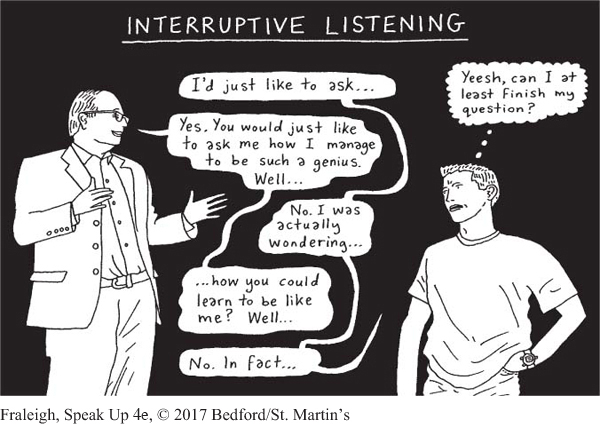Interruptive Listening
With interruptive listening, one person consistently interrupts another. You may have seen or heard instances of interruptive audience members, voicing their opinions or blurting out questions before the speaker is ready to entertain them. Speakers also can be interruptive listeners. For example, a speaker might call on an audience member who raises his hand, but instead of listening to his question, the speaker cuts him off midsentence and finishes the question for him. Speakers who do this are likely to miss certain aspects of the question or comment. Worse, they often come across as rude and arrogant, thus losing the respect of their audience.
Page 103

Be sure not to interrupt when listening to others: let them get their thoughts out fully before responding (if you are asked to respond). If you are the speaker dealing with an interruptive listener, tell the audience you’ll be happy to answer more questions at the end of the speech.